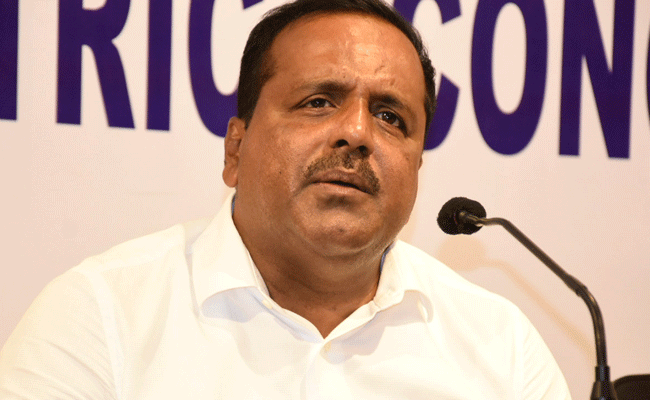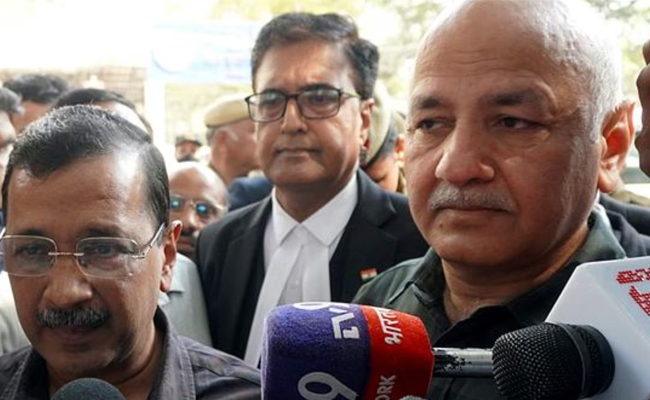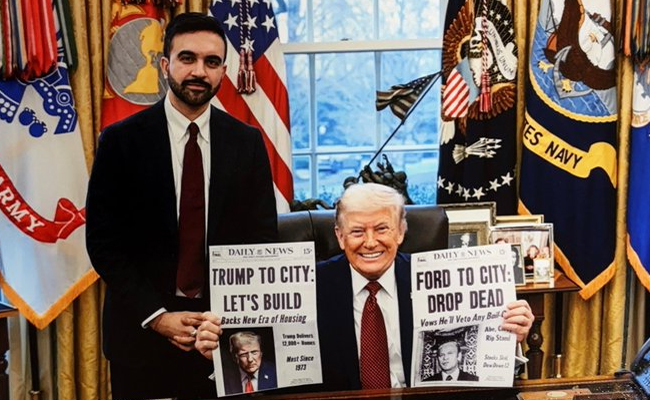Mangaluru (PTI): The Congress is not much worried about the active presence of Social Democratic Party of India (SDPI) in the communally polarised Dakshina Kannada region ahead of the May 10 assembly elections in Karnataka, former minister and Mangaluru MLA U T Khader said.
In an interview to PTI, he said, "I don't see SDPI as a threat to our vote bank. People are not going to support their communal agenda." Khader said people in the region are more concerned about issues like poverty, unemployment and protection of their basic rights. Only the Congress addresses these issues in the election campaign.
"Congress is there for everyone and strives to uphold the constitutional rights of citizens and fights to protect them. Voters will ultimately realise that."
"When we try to protect the Constitution, the rights of minorities will also be protected. The electorate will vote for a secular government in the state," he said.
Asked whether SDPI, the political arm of the banned Popular Front of India (PFI), will eat into the Congress vote bank, he said they have only limited influence in Dakshina Kannada.
"The BJP is on its deathbed in the state. It is now the duty of SDPI to save them," he said. "We are opposing the communal policies of both the parties."
The Congress leader further said the SDPI's two-three percent votes in the region cannot make an impact in the elections. "The Congress had won when they contested against us and we know the people are with us."
Congress is focusing on the failures of the BJP government which is steeped in corruption, he said expressing hope that the party will considerably improve performance in the twin districts of Dakshina Kannada and Udupi.
In the last elections, Khader was the only Congress candidate to win from the region. BJP had won 12 out of the 13 seats in the two districts.
He said the Congress is working unitedly for victory. On former MLA Mohiuddin Bava deserting the party and contesting on a Janata Dal (S) ticket from Mangaluru North, he said the decision will only damage his political career.
"Political leaders need to learn patience. The party cannot always favour a leader and they have to take it in their stride."
Khader said the description of the coastal region as the laboratory of Hindutva politics is not always correct. People have chosen different parties in successive elections.
He recalled that in 2008, out of the eight seats in Dakshina Kannada, the BJP and Congress won in four seats each. In 2013, Congress won seven seats and BJP won only in Sullia. In 2018, Congress lost due to certain undercurrents.
"A strong anti-incumbency wave is now visible in the state due to their divisive politics and people have learnt that Congress should come to power to maintain peace and harmony," he said.
On the CM Basavaraj Bommai-headed government taking away four percent quota for Muslims and placing them in the economically weaker sections category, Khader said it is not right to withdraw the existing quota of a community.
The decision reflects the BJP's continuing attempts to polarise the society and gain political advantage, he said.
Khader is contesting for the fifth consecutive time from the Mangaluru (erstwhile Ullal) constituency and had won all the four elections he faced.
Let the Truth be known. If you read VB and like VB, please be a VB Supporter and Help us deliver the Truth to one and all.
Singapore (PTI): An Indian-origin Malaysian man was sentenced in Singapore to 12 years' jail and 12 strokes of the cane for raping a domestic worker outside a train station after tricking her into thinking that he was a police officer.
Sharveen Chetty, 48, pleaded guilty on February 4 to one charge of raping the 35-year-old Indonesian woman in the bushes outside Exit F of a subway, Little India Mass Rapid Transit station, at about 8pm on July 11, 2022.
The victim was with her friends at the time, but Chetty lured her away before he sexually assaulted her, according to a report by The Straits Times on Thursday.
Two other charges – a second rape charge and a charge of impersonating a police officer – were taken into consideration during sentencing on Wednesday.
The witnesses who testified on the first day of the trial included a doctor from Women’s and Children’s Hospital who examined the victim a day after the rapes, and forensic scientists from the Health Sciences Authority.
Chetty had initially contested the charges in a High Court trial that began on February 3. But he changed his mind and pleaded guilty on what would have been the second day of the trial, according to the daily report.
In sentencing, Justice Dedar Singh Gill considered it aggravating that Chetty had targeted the victim because she was a foreigner who might be unfamiliar with the local authorities.
The judge rejected the defence's arguments that the rape was not premeditated.
The judge, however, noted that Chetty had pleaded guilty before the victim and key prosecution witnesses testified, thus sparing her and her friends from going through cross-examination.
The prosecution had sought a sentence of between 11 and 13 years’ jail and 12 strokes of the cane, noting Chetty’s extensive efforts to disguise himself, and his predatory act of leading the victim away from the rest of the group.
Chetty admitted that he became sexually attracted to the victim.





